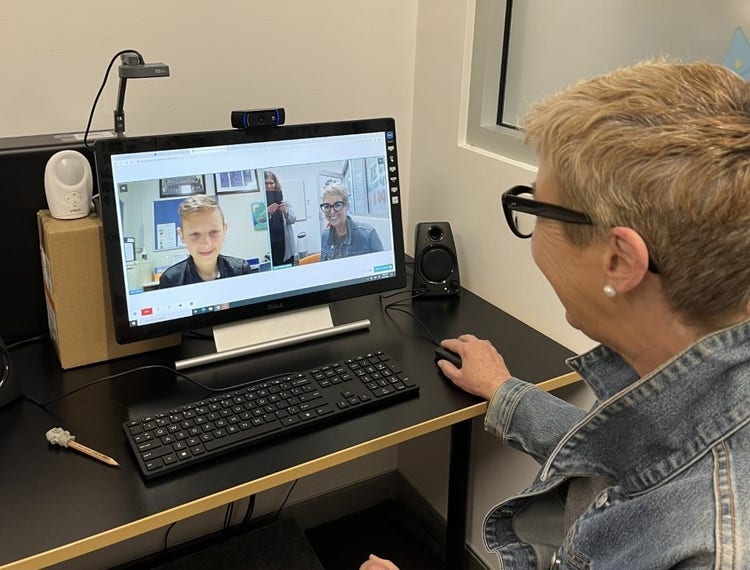Provision model
The NSW Centre for Effective Reading (NSW CER) provides a provision in which students who demonstrate low progress following evidence-based reading instruction will receive additional support. This support may be individualised reading intervention support for a child, online webinars for teachers, and resources and materials on this website.
Referrals
Referral information is used to determine the level of support a student requires.


Assessment
Assessments administered through NSW CER allow for the team to gain a thorough understanding of the child. This information guides the development of a tailored reading intervention plan for the student.
All students accepted for support by NSW CER are assessed by our team. Assessments are scheduled over 1 semester (2 terms), so that each week 1 to 2 students are assessed through each hub.
The assessment schedule is shared with families and schools at the end of Terms 2 and 4, to assist with planning. Assessments take place over 2-3 days for each student.
Students will be allocated to one of the 4 hubs for support: Dubbo, Wagga Wagga, Manly and Westmead.
- Manly - Travel is not required for students allocated to the Manly hub. Support is provided online through the students school.
- Westmead / CDU – it is requested that families travel to the Child Development Unit, Children’s Hospital Westmead, Sydney for assessment.
- Wagga Wagga and Dubbo – families are requested to travel to these sites.
These assessments may take place over 2-3 days.
Remote (online) assessments may be available upon request for students supported by Westmead, Wagga Wagga and Dubbo.


Meetings
Meetings are a valuable way of sharing information and collaborating with families, schools and students. This allows all involved to ask questions and to clarify information shared in a friendly and personal manner.
Meetings occur regularly throughout the 12 months of support provided by NSW CER. NSW CER, the school team, and the family are invited to these meetings. Students are also regularly invited so they can share their student voice.
- 3-4 weeks after assessment: Initial Planning Meeting to share the outcomes of the initial assessments
- every 10 weeks: Personalised Learning Meetings to share progress
- at completion of support: Final Review Meeting to share outcomes of review testing, the final review report
All those involved in supporting a student are invited. This may include the partner-school team, the family, any other community support or outside agencies.
Partner-schools support NSW in the inviting relevant people to these meetings.


Intervention
All students accepted for support from NSW CER receive an individualised plan for reading intervention (PRI) written by a NSW CER teacher in collaboration with speech pathologists or school psychologists.
Our expert NSW CER teachers will train the school tutor/s that the school has chosen to deliver the intervention.
Every 2 weeks our teacher liaises with the partner school to make minor adjustments to the program to ensure that their are high expectations and that the students is motivated and engaged to progress in their reading.



Have a question for our principal or teachers?
Our friendly office team can help you get in touch.